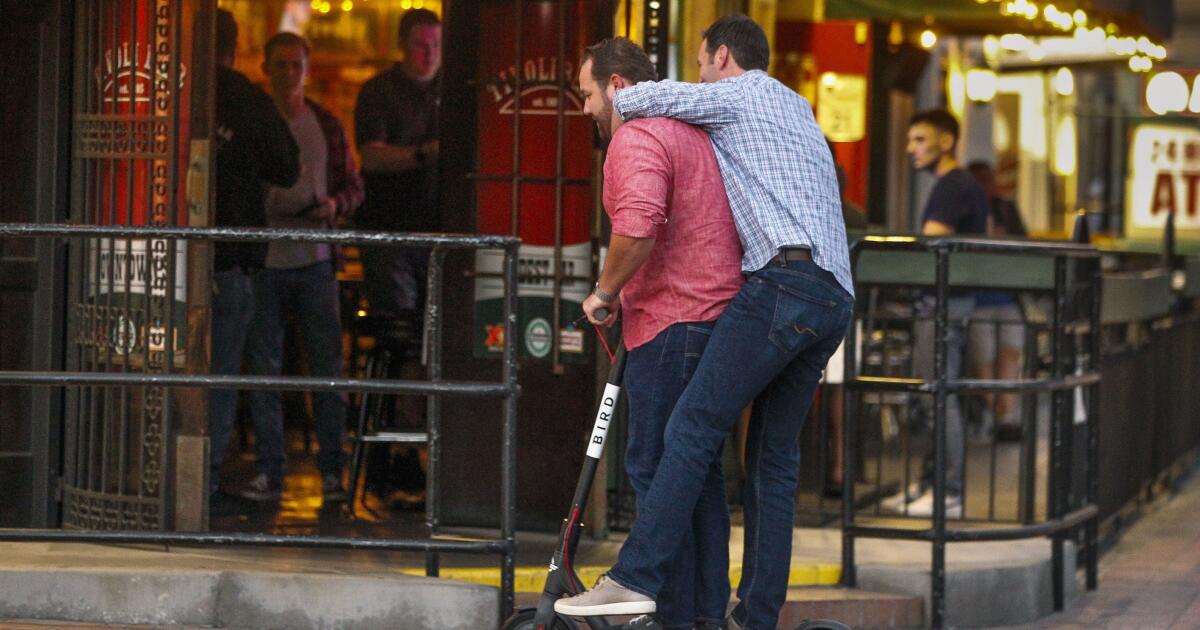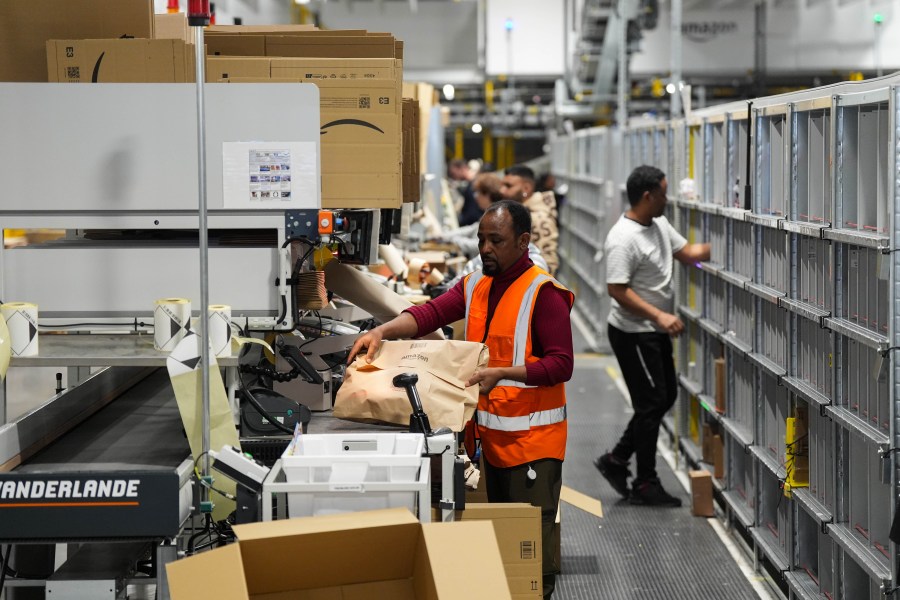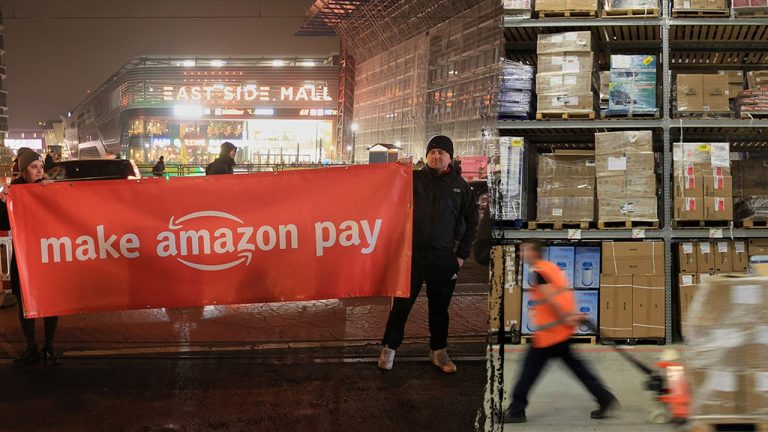

A key San Diego committee endorsed loosening regulations for electric scooters on Wednesday in an effort to lure back several operators that have left the city based partly on its strict rules.
The proposal to soften city regulations, which was approved 3-0 by the City Council’s Active Transportation and Infrastructure Committee, comes less than a week after the city’s last scooter company ceased operations in San Diego.
Between August 2021 and now, San Diego has gone from having half a dozen operators and an average of 8,000 scooters deployed to having zero operators and zero scooters.
That leaves the city without a convenient option for getting around that city officials say is crucial to fighting climate change and reducing congestion as neighborhoods become more densely populated.
The city also lacks any docked bike-share programs or any car-sharing programs like Car2Go or ZipCar.
Under the proposal, the city would retreat from a rule that keeps scooters off sidewalks by forcing companies to install speed-throttling technology on the devices that slows them to 3 mph when their GPS detects a sidewalk.
Instead, riders would only get audio alerts when they ride onto a sidewalk.
Other proposed changes include allowing scooters to be deployed in more locations, lowering fees and softening identification requirements for riders that aim to prevent underage use.
“We believe that the adjustments provide a balance on a number of fronts to ensure the program has the opportunity to be successful,” said Councilmember Kent Lee, who is spearheading the changes. “We’re certainly at a critical stage for this program.”
Lee stressed that bans on sidewalk parking and on usingf scooters on boardwalks would remain in place.
Councilmember Marni von Wilpert said she supported the changes because they strike a balance between pedestrians and scooter users.
Janet Rogers, leader of a scooter watchdog group called Safe Walkways, harshly criticized the proposed changes. She said they would roll back enforcement that her group spent years fighting for.
“We will have dangerous and noisy sidewalks all day and all night,” she said. “This proposal will put pedestrians at risk again.”
She also contends the problems facing scooters go far beyond city rules.
Many scooter fans have bought personal scooters in lieu of renting them, while neighborhood shuttles and ride-hail services like Uber depress demand.
Scooter companies also say they have suffered from rampant theft of their devices. They say that problem is particularly acute in San Diego because of its proximity to the U.S.-Mexico border and because the city’s rules require using the most advanced scooters, which are the most enticing to thieves.
James Lawson, representing the scooter industry during Wednesday’s committee meeting, praised the proposed changes — but stopped short of guaranteeing a return to the heyday.
Lawson blamed part of the problem on scooter operators not understanding the sidewalk rule, which they have called the strictest in the world, and not understanding how the city planned to enforce it.
Councilmember Joe LaCava said it would be wrong to view the city’s retreat on regulations as caving to the industry.
“I think it’s also important to recognize that this is not about us enabling a private for-profit business,” he said. “This is the city trying to meet its mobility goals and its climate action plan goals and looking for third parties to provide the equipment.”
The proposal would give the companies more flexibility on parking and staging scooters. Users would also be required to show ID only before their first ride, instead of once every three months.
In addition, the proposal would modify the city’s fee structure from charging scooter companies for every device deployed each day to charging them only when a scooter gets used. Each company would still have to pay an annual $20,000 fee to operate in the city.
Alyssa Muto, director of the city’s Sustainability and Mobility Department, said San Diego spends about $570,000 per year on contracts with two companies — one that helps enforce scooter rules and one that analyzes usage.
She said for the city to break even on its scooter program, there would have to be enough use of the devices to cover those costs.







